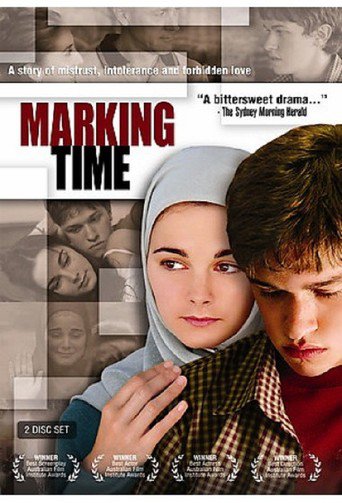jacandjim
We like to think of ourselves as serious movie 'buffs', but this locally-made film blew us away with its excellent script, genuinely moving acting, and believably important storyline. Important especially in this day of growing suspicion of our Muslim neighbours. Well done Australia (again) and especially well done to young Abe Forsythe who carried off a difficult role with intermittent asides to the camera, with panache. Geoff Morrell as the voice of reason is always reliable, (and got the best lines!) and the rest of the cast provided a nice mix of characters recognisable to most Aussies. The theme is topical yet timeless (in the manner of Shakespeare's original script), but never proselytises or feels weighty. We viewed this over four episodes, and were looking forward each week to being thoroughly entertained.
Kevin Griffith
The portrayal of youth in small town Australia is spot on. I lived in Manjimup, WA. I recognised the people. The main characters Hal's direct to camera talking would normally annoy me but in this production the actor carries it off. His father conveys the schoolteacher as a loving but serious minded person like so many teachers. His sharing a joint with his son must be familiar to many baby boomers who are now parents of young adults. The only criticism is that Randa is not as dark skinned as most Afghanis probably because the actress is of Yugoslavian background. Anyone who is familiar with small town Australia cannot fail to relate to John Doyle's excellent script.
Yukle
This is the greatest show ever. It portrays the real message refugees received from the majority of Australians when they tried to enter the country illegally and yet were sent away or locked up in detention (even the children; in fact, many are STILL there). The message is not forced in your face, it is subtle and allows room for your own opinion. Hal, the story's narrator, is like a lot of rural Australians: lazy, indifferent and a "light" user of drugs. The things he and his acquaintances get up to are another issue facing the youth of now. There are many messages lying in the story, yet none are overdone and all are very important, prophetic messages. There is humour at the appropriate times to bring up the mood a bit but by the end, you'll be in tears.It would've taken John Doyle, of all things a popular comedian, a lot of guts to write this because it goes against the common opinion of an entire nation and was actually dismissed by many as mere fiction. The single problem with Marking Time is there are only four episodes.
brekyattifs
John Doyle proves he is one of Australia's best writers with this mini series. I was excited by the previews and the show lived up to my expectations. Calling it a Romeo and Juliet set in rural Australia is to simplify a show that is so much more. The show's greatest strength is that it has a real context. How many times have a watched a series that is set in a vacuum, giving the audience no insight into the time and place it was produced. Marking Time portrays what it was like in Australia at the start of the 21st Century. Our pride in the Olympics, the sense of optimism in 2000, the bewilderment of Tampa and September 11. The trouble with most Australian TV and movies is they are set in two extremes. They are either set in the absolute outback (Priscilla Queen of the Desert, Welcome to Woop Woop) or in the inner city of a bustling metropolis (SamplePeople, Dirty Deeds). A show like Marking Time, or the equally excellent TheDish, is so refreshing because it is about the small cities and country towns where a lot of us live. If you have ever had to leave Geraldton or Rockhampton or Renmark or Batemans Bay or whatever your hometown for work or study you would understand exactly how Hal (Abe Forsythe) felt. Ultimately you outgrow your surroundings and it is time to move on. Of course the show is not without its faults. The Afghani refugees Hassan (Lech Mackiewicz) and Randa (Bojana Novakovic) look nothing like the ethnic Hazars they are supposed to be playing. The show would have been better if the producers had the courage to cast genuine refugees. Also the reasoning behind the detention of Randa and Hassan and the attitudes of the townspeople were oversimplifies. Not everyone who voted for the coalition in the 2001 election were horrible racists. These comments aside, Marking Time was both thoughtful and uplifting.


